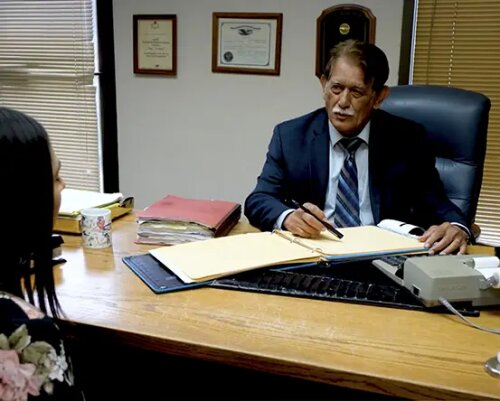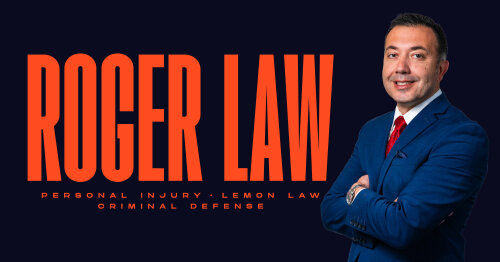Best Arrests & Searches Lawyers in Fresno
Share your needs with us, get contacted by law firms.
Free. Takes 2 min.
List of the best lawyers in Fresno, United States
About Arrests & Searches Law in Fresno, United States
In Fresno, California, the laws surrounding arrests and searches play a critical role in the criminal justice process. These laws dictate how law enforcement officers may detain individuals, conduct searches of people and property, and collect evidence. The United States Constitution, specifically the Fourth Amendment, provides protection against unreasonable searches and seizures. California state law and local Fresno policies also impact how arrests and searches are carried out within the region. Knowing your rights and the limitations on police authority is vital for anyone who may find themselves impacted by these procedures, whether as a suspect, witness, or concerned citizen.
Why You May Need a Lawyer
A lawyer with experience in arrests and searches can offer essential support and guidance in various situations, such as:
- Being detained or arrested by law enforcement
- Having your home, vehicle, or personal belongings searched by police
- Challenging the legality of a search or arrest in court
- Facing criminal charges based on evidence obtained during an arrest or search
- Seeking to suppress evidence that may have been collected unlawfully
- Understanding your rights during police encounters and how to exercise them
- Pursuing legal action for civil rights violations related to unlawful searches or arrests
An attorney ensures your rights are protected throughout the process and can help minimize the consequences of any criminal investigation or charge.
Local Laws Overview
In Fresno, arrest and search laws are shaped by federal, state, and local regulations. Key aspects include:
- Probable Cause: Law enforcement must have sufficient reason to suspect someone of criminal activity to make an arrest or conduct a search.
- Search Warrants: Generally, officers need a court-issued warrant to search property, though there are exceptions such as consent, exigent circumstances, or incident to lawful arrest.
- Consent Searches: If a person voluntarily agrees to a search, officers may proceed without a warrant.
- Stop and Frisk: Officers can stop and briefly detain individuals if they have reasonable suspicion of criminal activity, and may frisk for weapons if they believe there is a safety risk.
- Miranda Rights: After an arrest, police must inform you of your rights, including the right to remain silent and the right to an attorney.
- Body Camera Policies: Fresno Police Department officers often use body-worn cameras to document arrests and searches, which can offer important evidence in disputes.
- Racial Profiling Prohibition: State law prohibits police from stopping or searching someone based solely on race, ethnicity, or national origin.
Frequently Asked Questions
What should I do if I am stopped by the police in Fresno?
Remain calm, keep your hands visible, do not resist, and politely ask if you are free to leave. You have the right to remain silent and to ask for an attorney.
Do the police always need a warrant to search my home or car?
Not always. Exceptions include consent, searches incident to arrest, exigent circumstances, vehicle searches with probable cause, and visible evidence.
Can I refuse to consent to a search?
Yes, you can politely refuse consent to a search. If police have a warrant or another legal exception, they may proceed without consent.
What happens if I am arrested in Fresno?
You will be taken into custody, booked, and may be given a chance to post bail. You have the right to remain silent and to contact an attorney.
What are my Miranda Rights?
They include the right to remain silent, the right to an attorney, and the warning that anything you say can be used against you in court.
Can evidence gathered during an illegal search be used against me?
Generally, evidence from an illegal search may be excluded from court under the exclusionary rule, but there are exceptions.
How can I challenge an unlawful search or arrest?
Your attorney can file a motion to suppress evidence obtained unlawfully or argue for dismissal if your rights were violated.
What if I believe the police used excessive force during my arrest?
You can file a complaint with the police department, and you may have grounds for a civil lawsuit. Consult an attorney for advice.
Do I have to show ID to police in Fresno?
You are generally required to identify yourself if you are lawfully detained or pulled over while driving. Otherwise, you are not required to show ID unless under arrest.
How can I find out if there is a warrant for my arrest in Fresno?
You can contact the Fresno County Sheriff’s Office or check online with the local court system. An attorney can also assist with warrant checks.
Additional Resources
Several organizations and governmental bodies can provide assistance or more information regarding arrests and searches in Fresno:
- Fresno Police Department
- Fresno County Sheriff’s Office
- Fresno County Superior Court
- California State Bar Association (Lawyer Referral Service)
- American Civil Liberties Union of Northern California
- Legal Aid Society of Fresno
- Public Defender’s Office of Fresno County
- California Attorney General’s Office
Next Steps
If you need legal assistance related to arrests and searches in Fresno, consider the following steps:
- Do not discuss your case with law enforcement without an attorney present
- Gather any documents or evidence related to your arrest or search
- Contact a qualified criminal defense attorney, preferably one with experience in Fresno
- Use lawyer referral services or contact the public defender’s office if you cannot afford private representation
- Keep track of court dates and comply with all legal obligations
- Educate yourself about your rights and follow legal advice from your attorney
Taking prompt action and reaching out for legal guidance can help protect your rights and improve the outcome of your situation.
Lawzana helps you find the best lawyers and law firms in Fresno through a curated and pre-screened list of qualified legal professionals. Our platform offers rankings and detailed profiles of attorneys and law firms, allowing you to compare based on practice areas, including Arrests & Searches, experience, and client feedback.
Each profile includes a description of the firm's areas of practice, client reviews, team members and partners, year of establishment, spoken languages, office locations, contact information, social media presence, and any published articles or resources. Most firms on our platform speak English and are experienced in both local and international legal matters.
Get a quote from top-rated law firms in Fresno, United States — quickly, securely, and without unnecessary hassle.
Disclaimer:
The information provided on this page is for general informational purposes only and does not constitute legal advice. While we strive to ensure the accuracy and relevance of the content, legal information may change over time, and interpretations of the law can vary. You should always consult with a qualified legal professional for advice specific to your situation.
We disclaim all liability for actions taken or not taken based on the content of this page. If you believe any information is incorrect or outdated, please contact us, and we will review and update it where appropriate.












